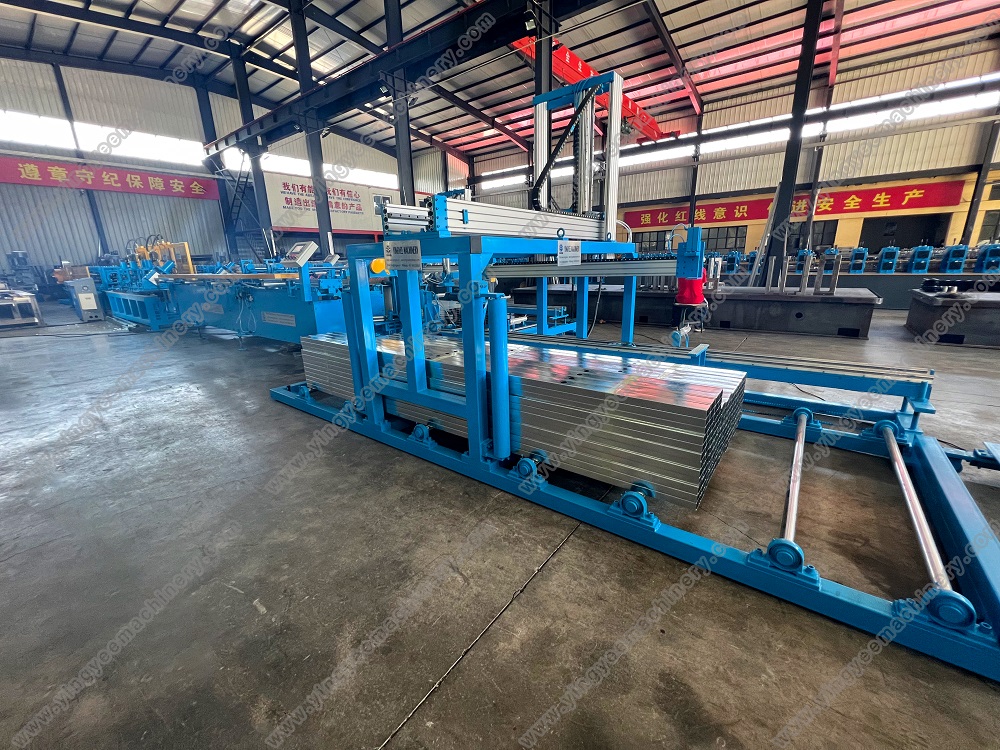
The Role of Stud Forming Machines in Modern Manufacturing
In the ever-evolving landscape of manufacturing, efficiency, accuracy, and cost-effectiveness are paramount. Among the numerous innovations that have transformed the industry, stud forming machines have emerged as critical tools in the production of fasteners, connectors, and a variety of metal components. This article explores the significance of stud forming machines, their operational principles, and their impact on modern manufacturing processes.
What is a Stud Forming Machine?
Stud forming machines are specialized equipment designed to produce stud bolts and other related fasteners from coiled metal wire. These machines operate through a series of processes that include cutting, bending, and forming the wire into specific shapes that meet various industrial requirements. The most common applications of stud forming machines are in automotive manufacturing, construction, and electronic components, where precision fasteners are essential for assembling parts and ensuring structural integrity.
How Stud Forming Machines Work
The functionality of a stud forming machine can be broken down into several key steps
1. Feeding The process begins with feeding a coil of wire into the machine. The wire is unwound and aligned to ensure smooth operation.
2. Cutting Once the wire reaches the designated length, a cutting mechanism slices it into individual pieces. This precise cutting ensures that each stud meets specific dimensional requirements.
3. Forming The cut segments are then subjected to forming stations, where they are shaped using punches and dies. These forming stations can bend, thread, and create other features on the stud as required by the specific application.
5. Quality Control Advanced stud forming machines are equipped with sensor technology to monitor the production process, allowing for real-time quality control and ensuring that each component meets stringent specifications.

Advantages of Stud Forming Machines
The use of stud forming machines offers numerous benefits over traditional manufacturing methods.
- Increased Efficiency These machines can produce a large volume of fasteners in a relatively short time, significantly increasing throughput for manufacturers.
- Cost-Effectiveness By automating much of the production process, stud forming machines reduce labor costs and minimize material waste, resulting in lower overall production costs.
- Precision and Consistency The automated nature of stud forming machines ensures high precision in manufacturing, leading to greater consistency in product quality. This is crucial in industries such as automotive and aerospace, where even minor discrepancies can result in safety issues.
- Versatility Modern stud forming machines can accommodate various wire materials and sizes, making them adaptable to a wide range of manufacturing needs.
Applications in Different Industries
Stud forming machines play a vital role in a variety of sectors. In the automotive industry, they produce components critical for vehicle assembly, such as stud bolts that secure parts together. In construction, they manufacture fasteners used in structural applications, ensuring safety and stability. Furthermore, in electronics, these machines create tiny yet essential connectors that facilitate components' interaction.
Conclusion
In summary, the advent of stud forming machines has transformed the manufacturing landscape, enabling companies to produce high-quality fasteners efficiently and cost-effectively. As industries continue to demand higher standards of precision and reliability, the importance of advanced manufacturing technologies, such as stud forming machines, will only grow. Embracing these innovations not only enhances productivity but also contributes to the overall advancement of manufacturing practices, ensuring that businesses remain competitive in an increasingly global market. As we look ahead, the continued evolution and integration of stud forming technology will undoubtedly play a significant role in shaping the future of modern manufacturing.